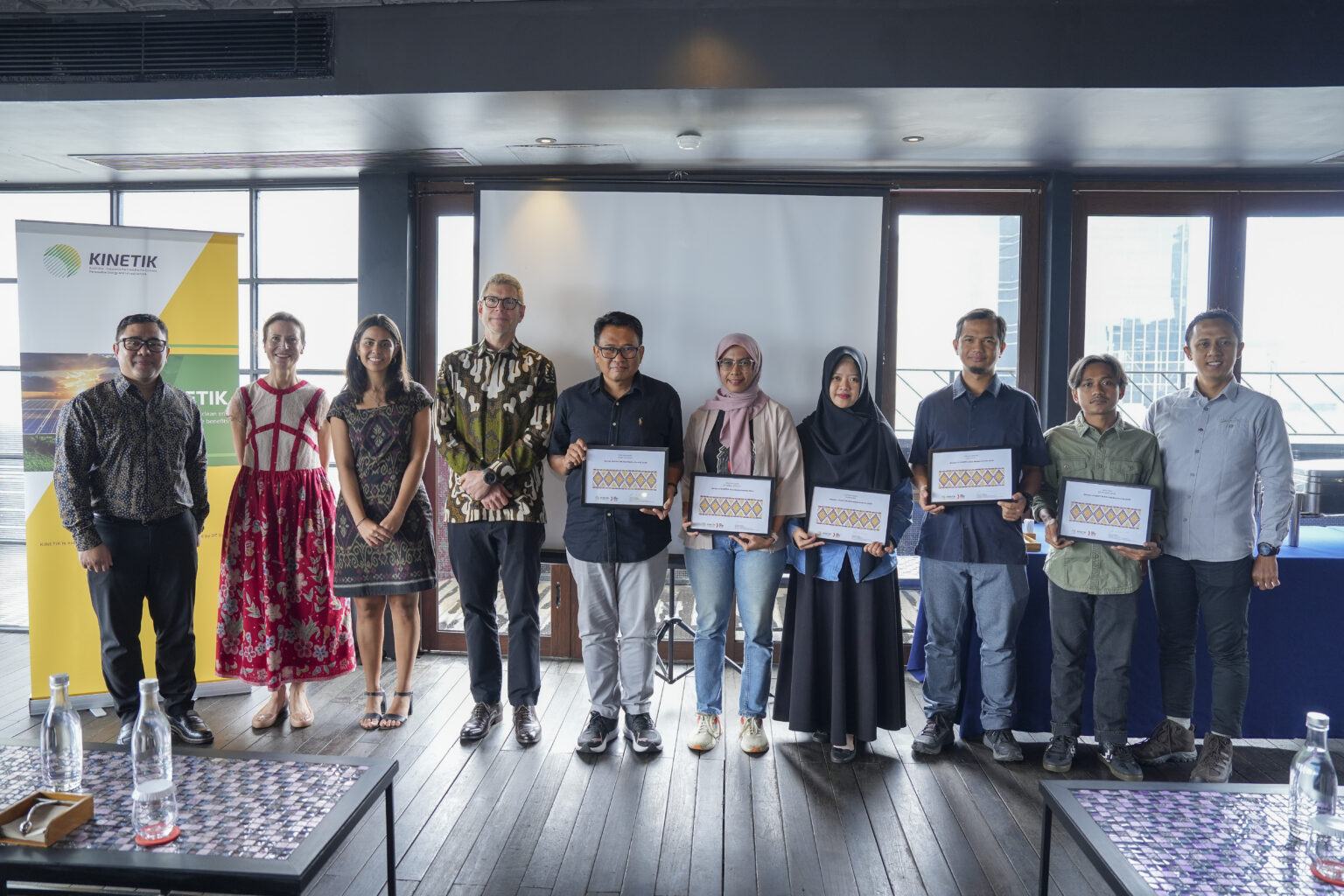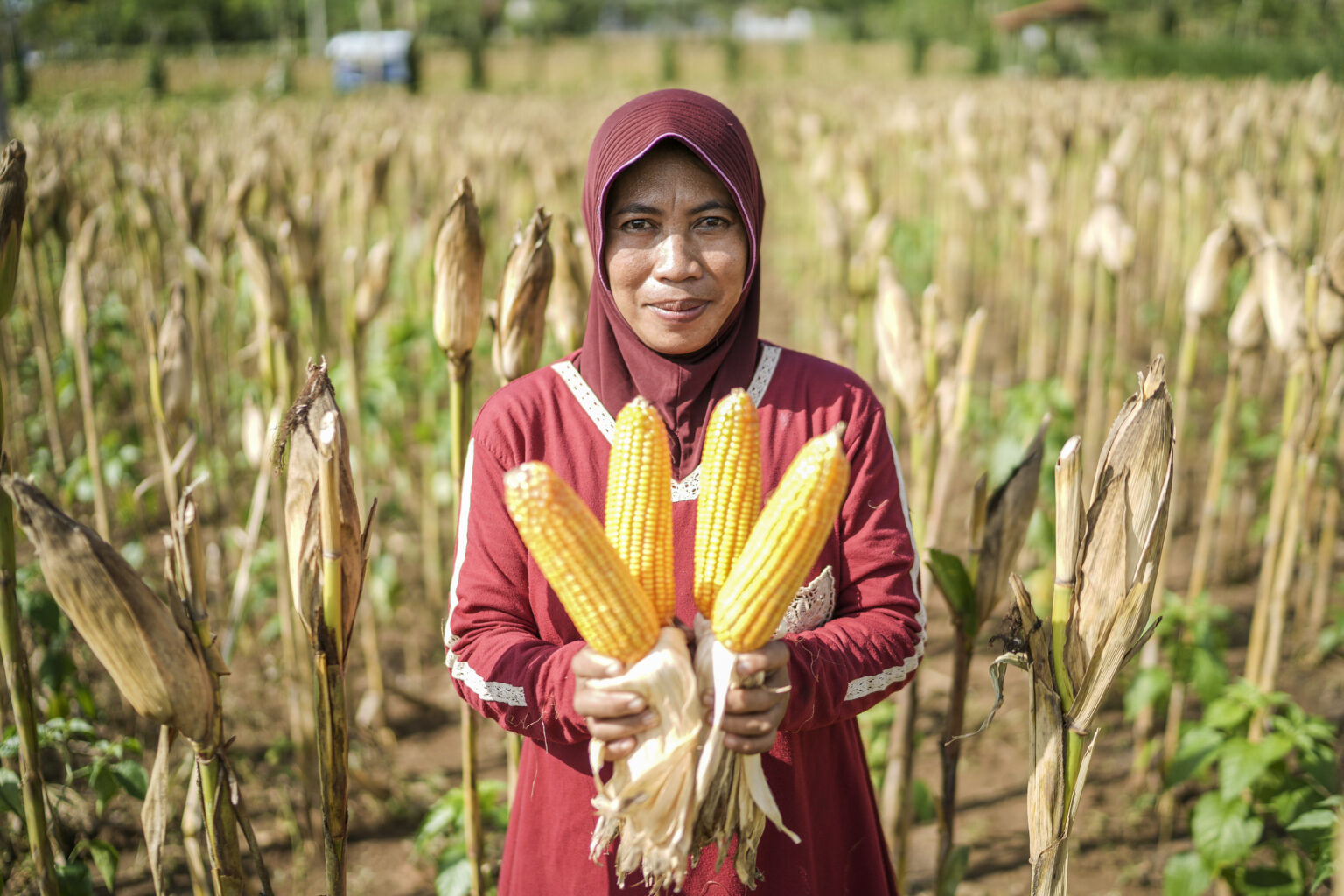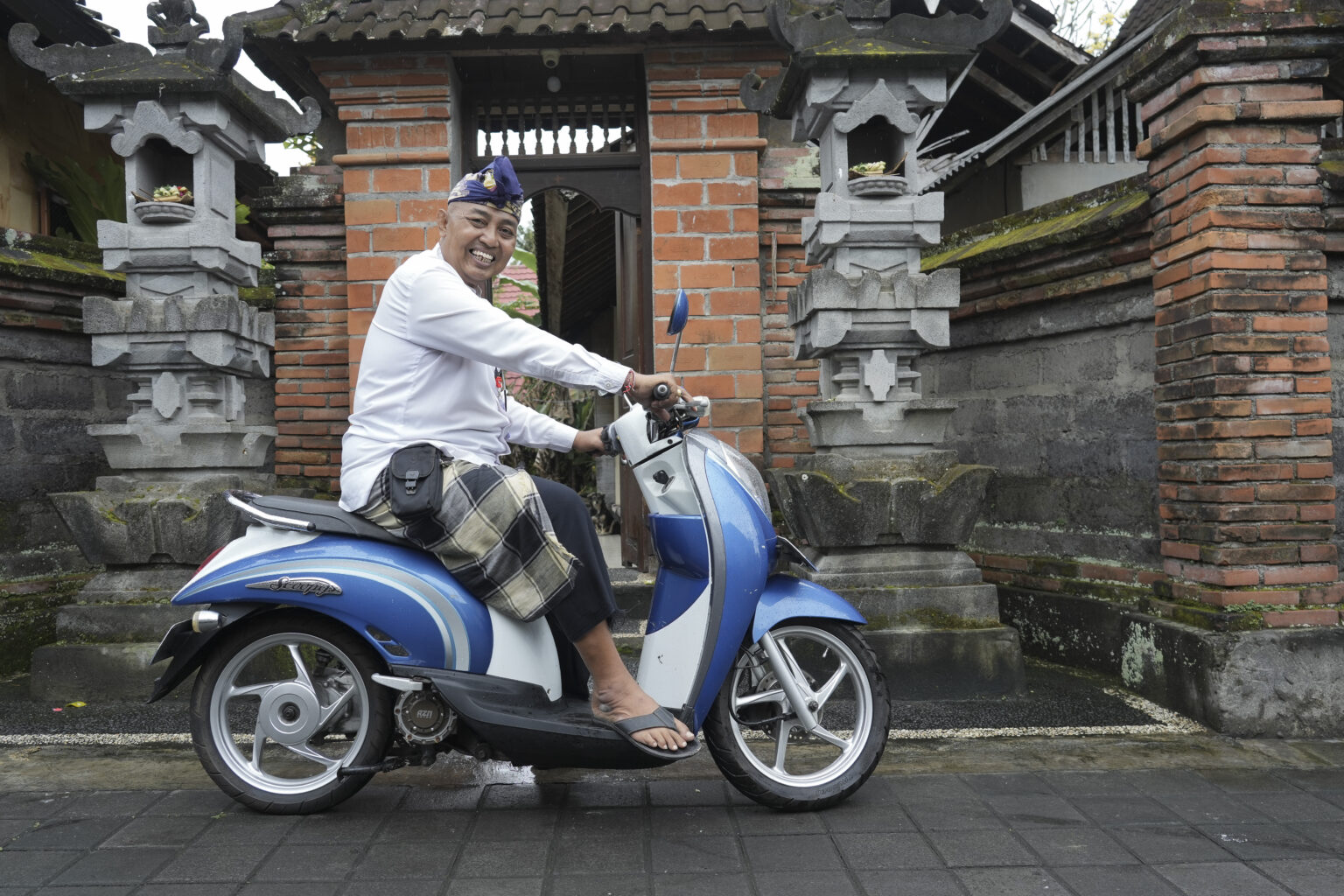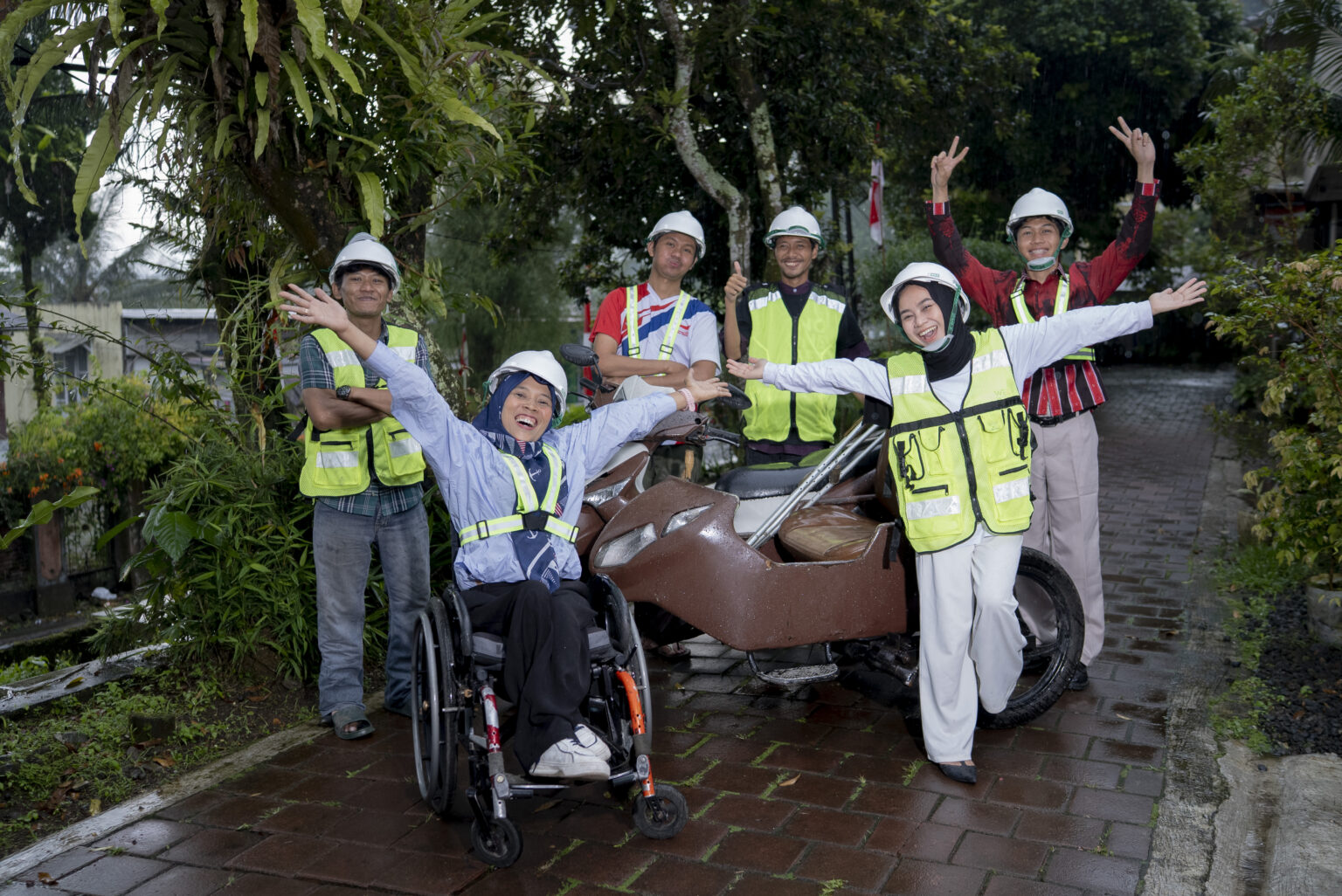
Fifteen clean energy and climate startups from across Indonesia have been selected from a competitive field to participate in the KINETIK NEX Entrepreneurs Program. The program – which has a focus on startups from Eastern Indonesia and those that are led by women – will include eight weeks of tailored mentoring, technical support and access to investors. Five of the startups will then be awarded a share of IDR 1.6 billion in grant funding. Here are the 15 startups selected to be part of the program.
Kuan Timor Teknologi (Kupang)
Kuan Timor Teknologi, based in Kupang, East Nusa Tenggara (NTT), provides clean water to areas without groundwater.
Currently, some remote communities must walk long distances or even cross the sea to purchase costly water.
This startup uses clean energy to power water generators and solar-powered desalination systems that produce drinking water from air humidity or seawater.
This enables remote communities to have access to affordable, safe drinking water.
In the future, Kuan Timor plans to expand its technology to more villages in NTT and other island regions.
With this innovative approach, clean water access, renewable energy and climate adaptation can go hand in hand.
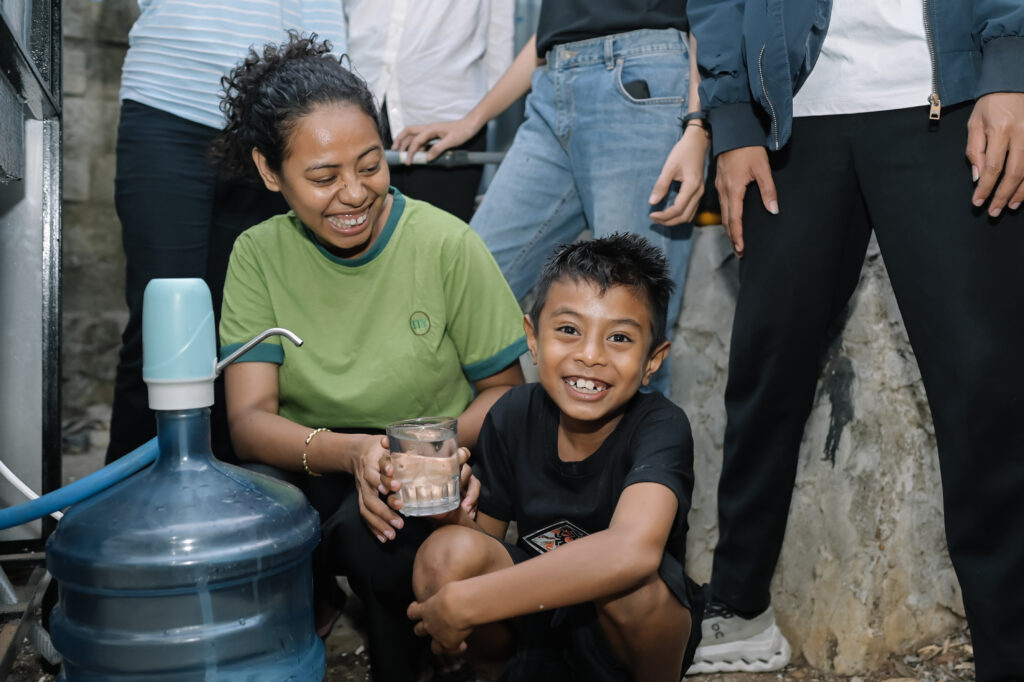
Photo: FRENGKY M. RADJA
Sumba Solusi Alam (Sumba)
Sumba Solusi Alam distributes solar powered lights and phone chargers made from recycled electronic waste.
Many villages in Sumba still lack reliable electricity, particularly in remote inland areas.
Around 25% of households rely on kerosene – which is dangerous and costly – for lighting at night, creating health risks and carbon emissions.
For rural households with diesel generators, electricity remains expensive and limited to a few hours a day.
Sumba Solusi Alam has created PowerWells, made from recycled electronic waste, which provide lighting and charge phones.
This tackles two problems – limited energy access and mounting e-waste.
With clean electricity, children can study at night, women can weave after dark, small businesses can be more productive, and families are freed from kerosene dependence.
Sumba Solusi Alam also trains local communities to maintain the solar units, creating new skills and a sense of ownership.
In the future Sumba Solusi Alam aims to expand to more villages in Sumba and other remote areas.
The start-up is passionate about using renewable energy, cutting waste and empowering communities to drive sustainable development.
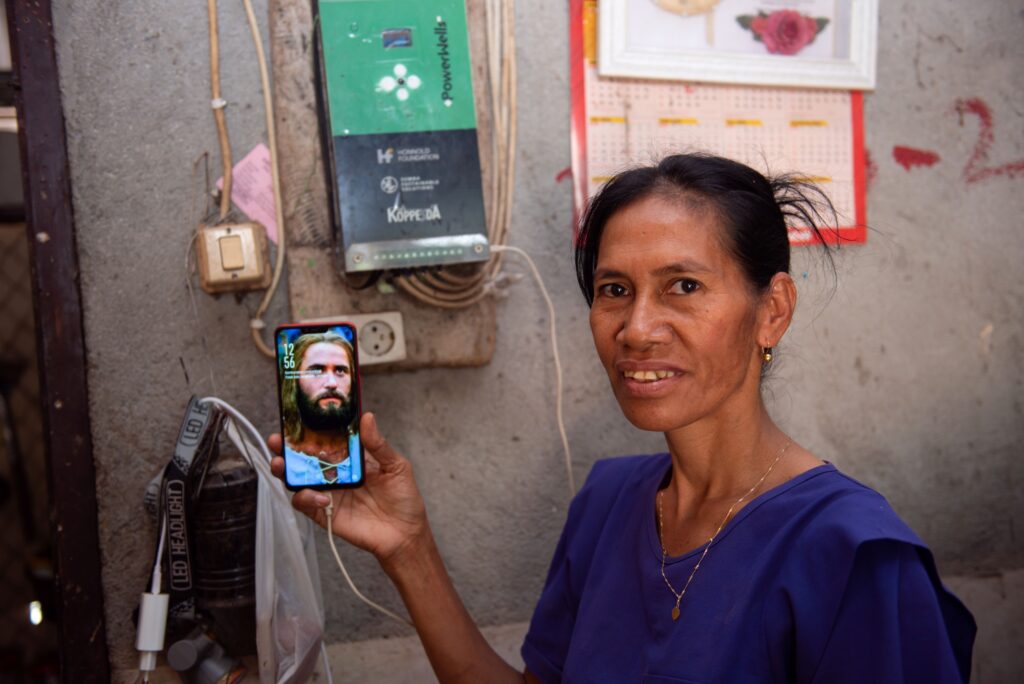
Photo: YAN PITHER UMBU MAKI PAWOLUNG
Energi Timur Nusa Power (Sumbawa)
Energi Timur Nusa Power is a renewable energy technology startup from Sumbawa, West Nusa Tenggara, focused on improving the performance of micro-hydro power plants in remote villages.
Many of these plants operate below capacity due to manual systems and limited infrastructure.
The startup has introduced a smart control system that automatically adjusts to changes in water flow and electricity demand. This ensures energy supply is more reliable, stable, and efficient.
The technology means micro-hydro power plants can better meet villagers’ energy needs. Local businesses can grow more effectively and renewable energy potential can be fully harnessed.
Energi Timur Nusa Power wants to replicate this technology across dozens of villages with underperforming micro-hydro plants.
This would expand access to clean energy while supporting rural economic development.
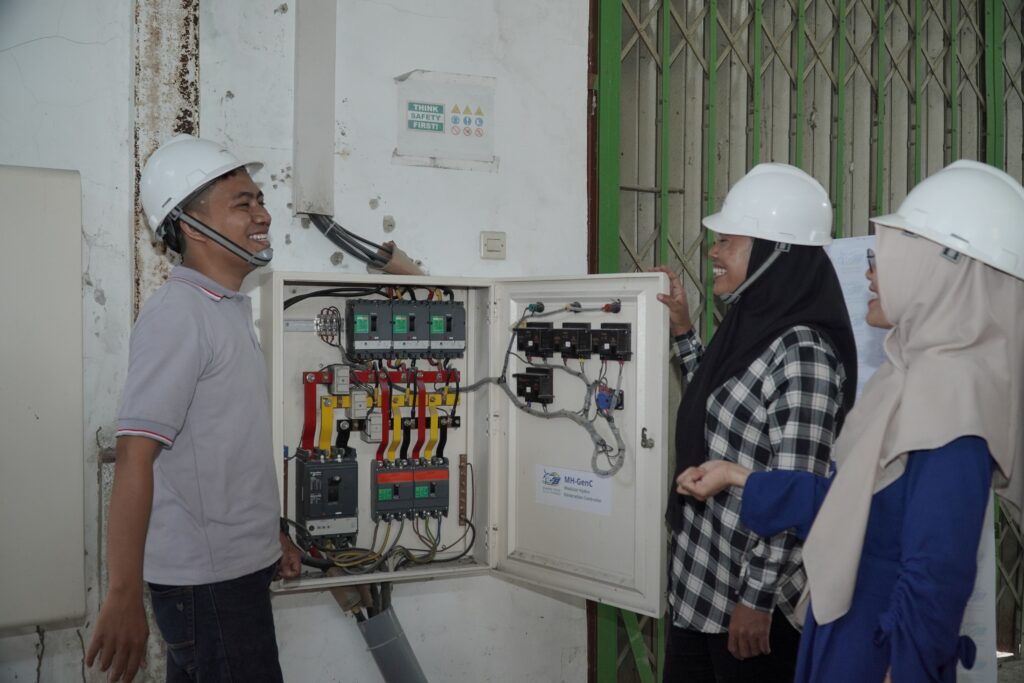
Photo: SAPTONI
Puleh Indonesia (Banda Aceh)
Puleh Indonesia is a social enterprise that converts agricultural waste into organic fertiliser.
It was founded to address three main issues: environmental pollution from waste, farmers’ dependence on costly chemical fertilizers and environmental degradation that reduces soil fertility.
Puleh offers an innovative circular solution by transforming agricultural waste – primarily from coffee and patchouli – into high-quality organic fertilizer through fermentation.
This increases harvests while cutting production costs.
On Puleh.com, farmers can access a marketplace, track their supply chains, and learn through the AI-powered Puleh Academy.
Puleh provides women and young farmers with technical training, IoT-based land management – which uses sensors and connected devices to monitor soil, crops, and the environment – and digital marketing.
Puleh Indonesia hopes to replicate this model across other commodities and regions.
By combining clean energy, technology, and community involvement, Puleh is helping to build inclusive, competitive and sustainable green agriculture in Aceh.
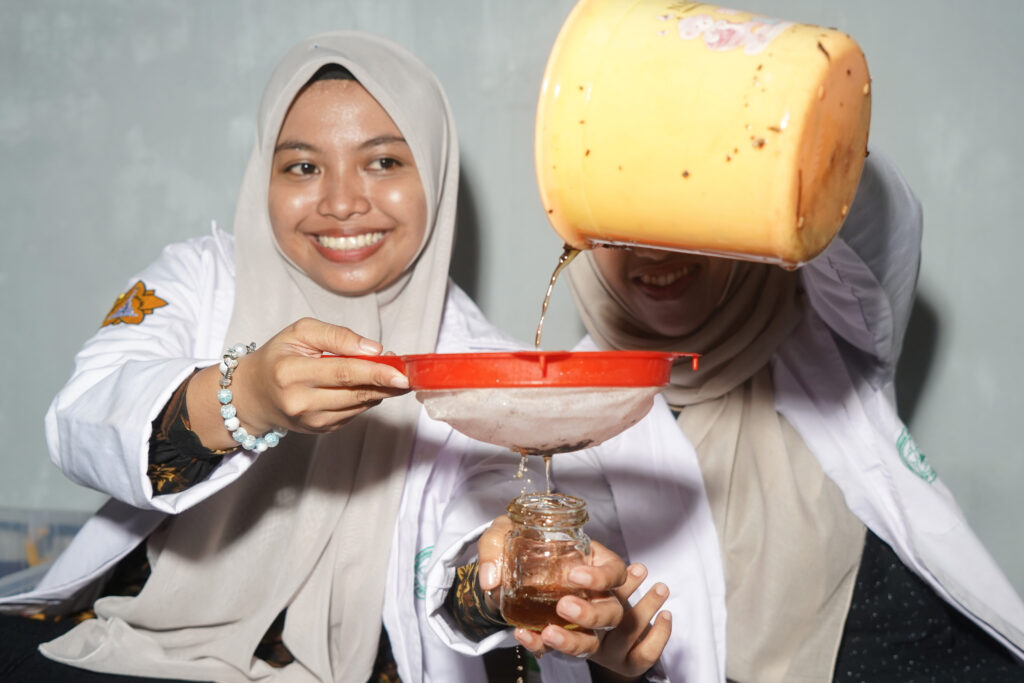
Photo: HENDRI
Difabike (Yogyakarta)
Difabike offers a unique transport service: three-wheeled electric motorbike taxis designed for people with disabilities.
The Yogyakarta-based startup also employs drivers with disabilities.
Until now, accessible, disability-friendly transport has been very limited.
Difabike promotes social inclusion by creating new job opportunities for people with disabilities while also providing a taxi service with low emissions.
Difabike plans to expand its fleet and introduce its business model in other cities.
Its vision is for inclusive transport that supports Indonesia’s clean energy transition.
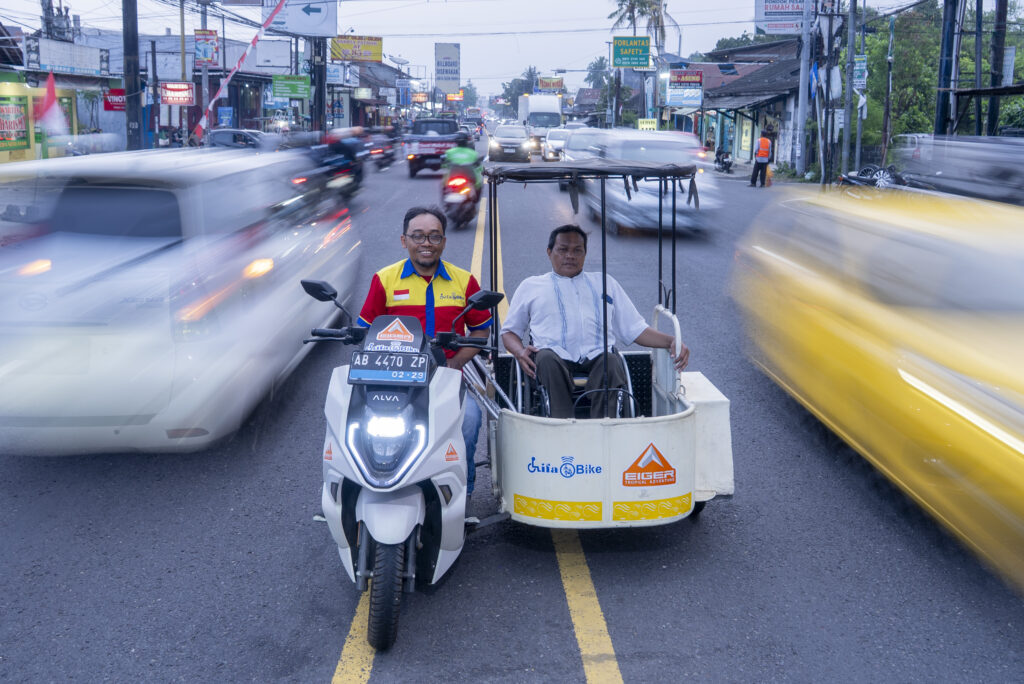
Photo: JEFRI TARIGAN
Pristinz Indonesia (Jakarta/Bali)
Pristinz Indonesia, a women and youth-led startup based in Jakarta and Bali, seeks to make buildings part of the climate solution.
Traditionally windows in buildings have provided light but they also trap heat and raise cooling costs.
Pristinz has developed an innovative glass technology that not only blocks solar heat but also generates clean energy.
The impact is significant. Electricity consumption for air conditioning is reduced, greenhouse gas emissions are lowered and buildings become energy assets.
As a women- and youth-led company, Pristinz also demonstrates commitment to gender equality in the clean energy industry.
Pristinz plans to expand to major Indonesian cities and partner with the construction and real estate sectors.
With the global trend toward green buildings, this solution could set a new standard for sustainable architecture.
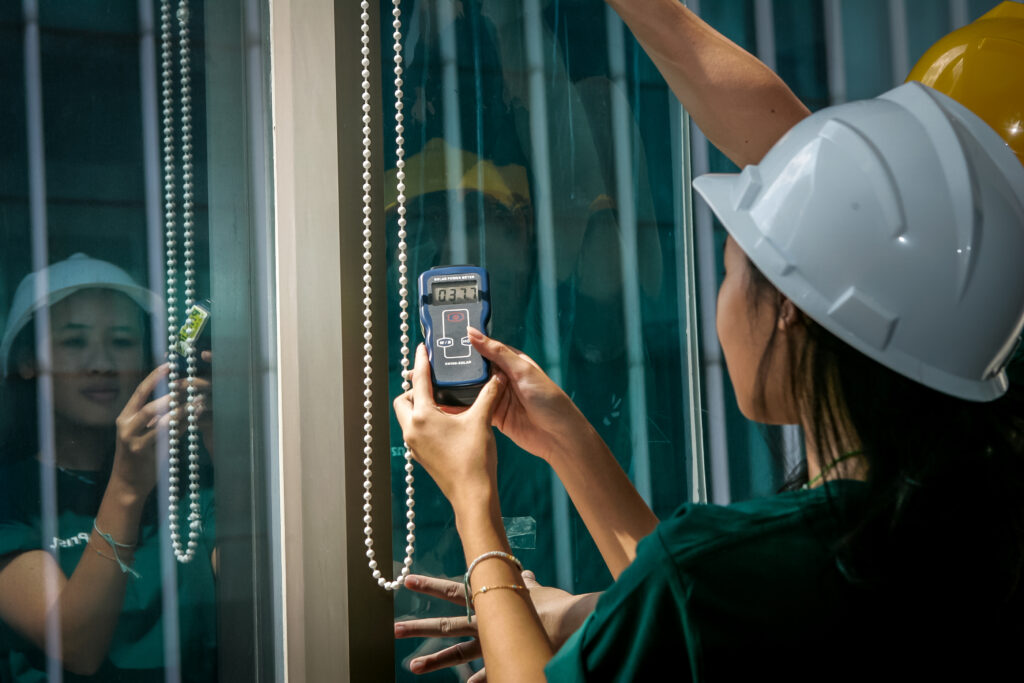
Photo: Photo: MOCHAMAD TOPANDI
NUSACUBE (Jakarta/Mojokerto):
NUSACUBE is a start-up that produces clean water and ice blocks using renewable energy.
Fishers in remote areas often struggle to keep their catches fresh due to a lack of ice caused by a shortage of electricity.
NUSACUBE provides 24-hour electricity access from solar and wind power and helps them produce clean water and ice.
In areas without access to clean water, this includes drilling and filtration to produce non-brackish water, which is processed into ice at a low cost.
The ice is of higher quality than brackish-water ice typically used in these regions, freezing faster and melting more slowly.
This keeps fish fresher, raises selling prices and reduces spoilage, boosting the incomes of more than 500 fishers on a single island by up to 70%.
NUSACUBE drives energy independence, local economic growth and food security in Indonesia’s most remote communities.
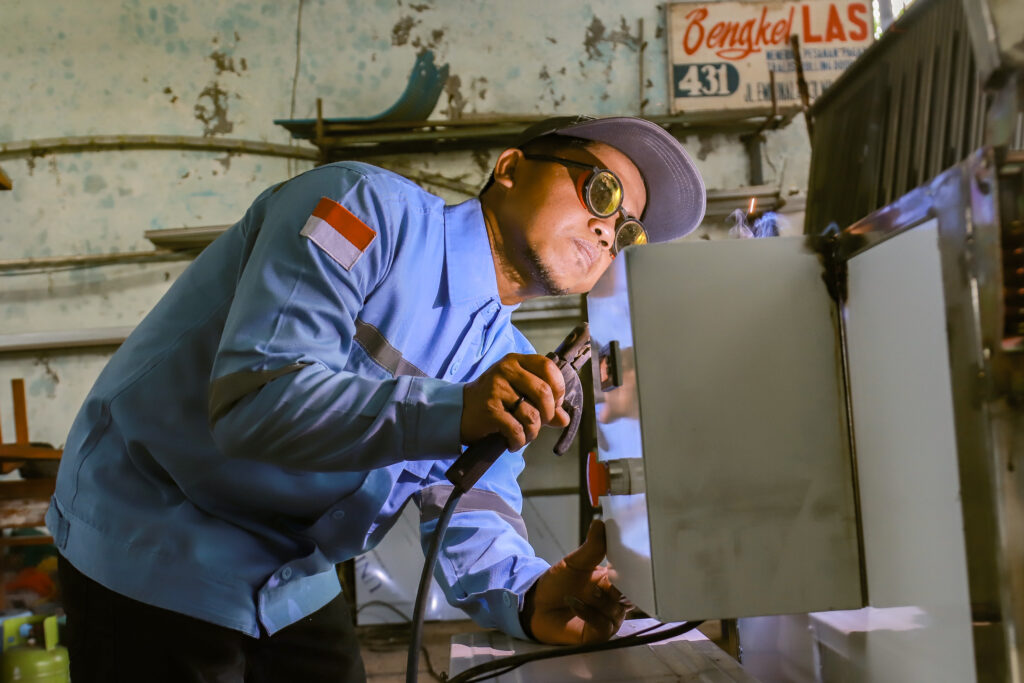
Photo: SURYANTO KEBO
CV Cahaya Inklusi Wonosobo
CV Cahaya Inklusi Wonosobo is a social enterprise that makes buildings more accessible for people with disabilities using sustainable materials.
One of its products is a portable ramp made from charcoal ash, which is eco-friendly and easy to install.
The social enterprise also provides building assessments, permanent ramp renovations, education on energy-saving and supports MSMEs run by people with disabilities.
Cahaya Inklusi not only increases accessibility but also creates jobs, drives economic empowerment and combines green innovation with advocacy for people with disabilities.
It aims to expand its products and services to ensure disability inclusion is an integral part of sustainable development in local communities.
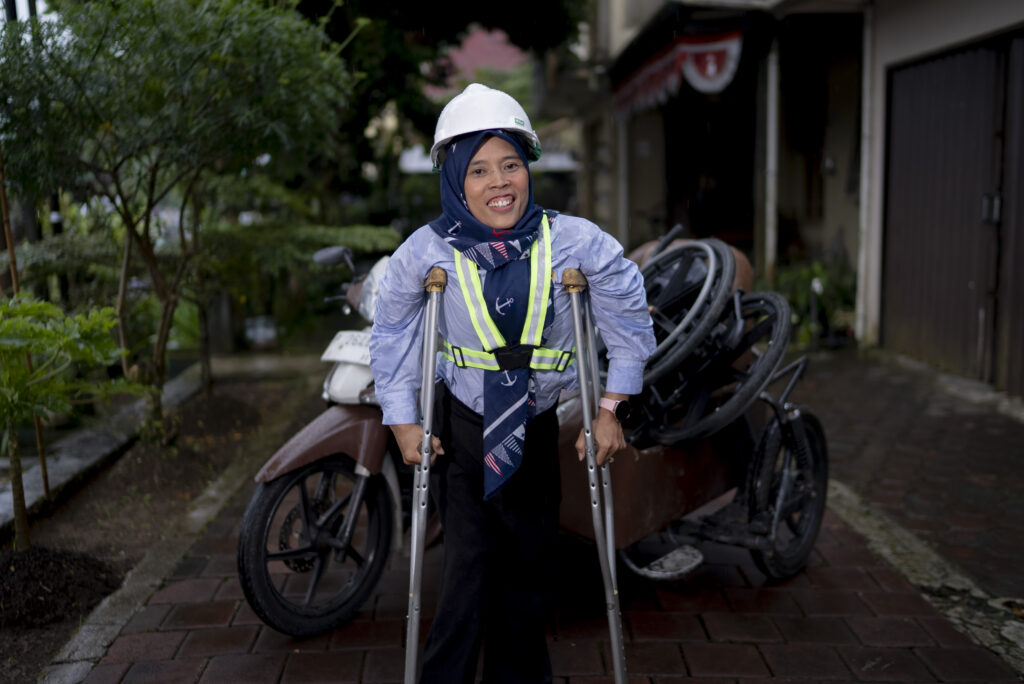
Photo: JEFRI TARIGAN
BIKI (Bogor)
BIKI is a startup from Bogor focused on reducing food waste.
Every year, millions of tons of fruits and vegetables in Indonesia do not reach consumers because they spoil quickly.
This hurts the profits of smallholder farmers, while emissions from organic waste worsen the climate crisis.
BIKI’s solution is an eco-friendly edible coating made from natural ingredients.
The coating is edible, doubles the shelf life of fresh produce and replaces single-use plastic.
BIKI has also developed 30 harvest hubs across Java. Located at farmers’ packing houses, these hubs create jobs for women and use digital tools to process coat and distribute fruit and vegetables more efficiently.
The edible coating means the quality of the produce can be preserved for longer and attract higher prices.
Consumers benefit from fresher fruit and vegetables and the environmental impact of food waste is reduced.
In future BIKI aims to expand the use of its edible coating to other produce and establish hubs in agricultural centres across Indonesia.
With the global trend toward sustainable packaging, BIKI has the potential to become a pioneer of green agriculture in Indonesia.
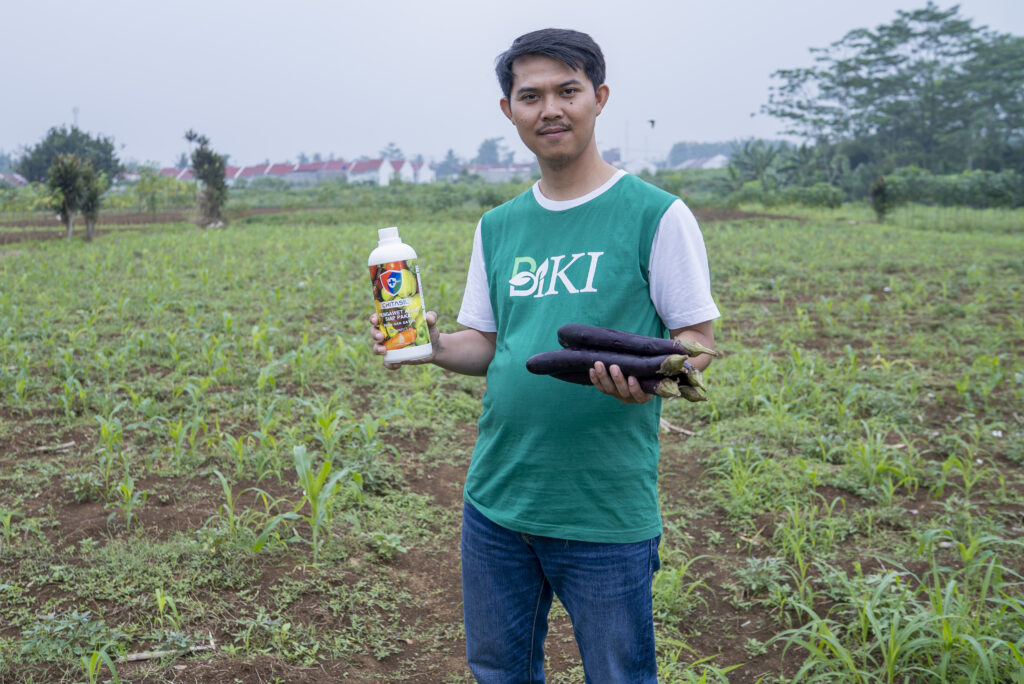
Photo: JEFRI TARIGAN
Waus Energy (Manado)
Waus Energy, based in Manado, transforms plastic waste and used cooking oil into fuel.
Single-use plastic and used cooking oil are difficult to manage and often end up polluting the environment, while demand for household and industrial fuel continues to rise.
Waus Energy has developed technology that converts this waste into a kerosene replacement for household stoves and restaurants and a diesel replacement for boilers, burners and industrial diesel engines.
“By processing waste into fuel, we can reduce pollution and supply cheap energy to remote island communities,” said Waus Energy founder and CEO Chris Londong.
The process is energy-efficient, requires no water cooling, and produces fuel that meets European Union vehicle emission regulations.
The fuel is liquid, making it easy to distribute using jerrycans to remote islands.
In addition to reducing pollution, this fuel provides local communities with their own source of energy with low production costs and competitive sales margins.
In the future Waus Energy aims to build small-scale biofuel plants and community-based refill stations across the region.
This innovation has the potential to expand access to affordable energy, create new jobs and accelerate Indonesia’s clean energy transition.
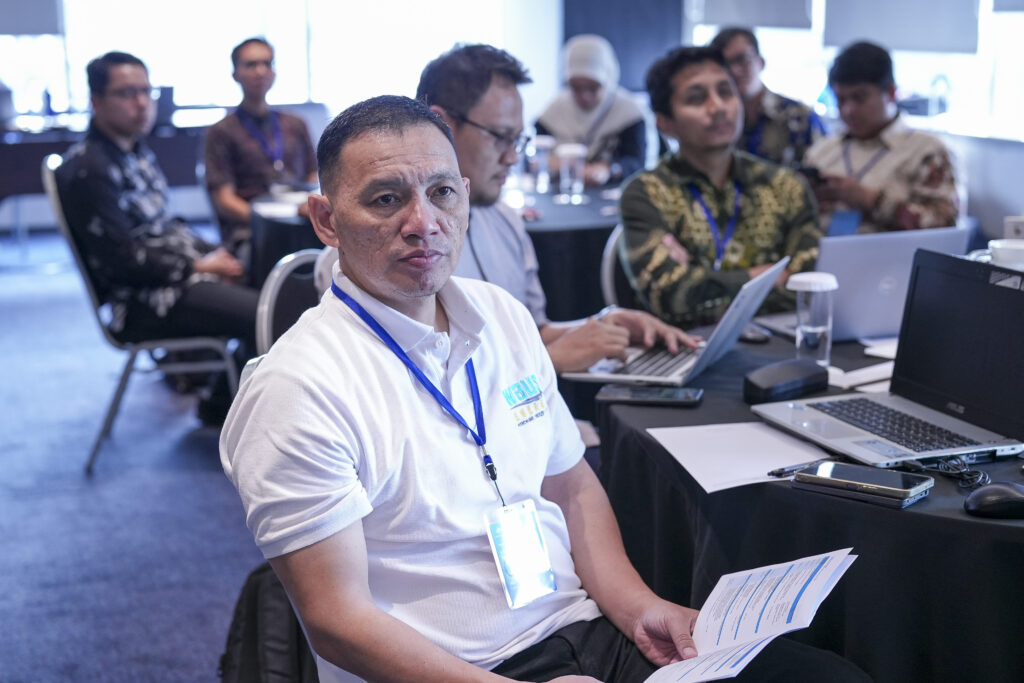
Kilatsoon (Bandung)
Kilatsoon, a startup from Bandung, has developed an electric lawn-mowing robot.
Traditionally, mowing large areas requires heavy labour, fossil fuel-powered machines and high costs. Kilatsoon answers this with a smart, remote-controlled robot that is efficient and eco-friendly.
Called SIGAP (Smart Interactive Grass-cutting Assistance Platform), the robot lawnmower is ideal for city parks, sports fields and industrial zones.
With automation, tasks are completed faster, more safely, and at lower cost. The benefits include reduced air and noise pollution and improved worker productivity.
Kilatsoon plans to expand into major Indonesian cities and add smart features like automatic area mapping.
With the rise of green, smart cities, lawnmower robots could become a cornerstone of open space maintenance.
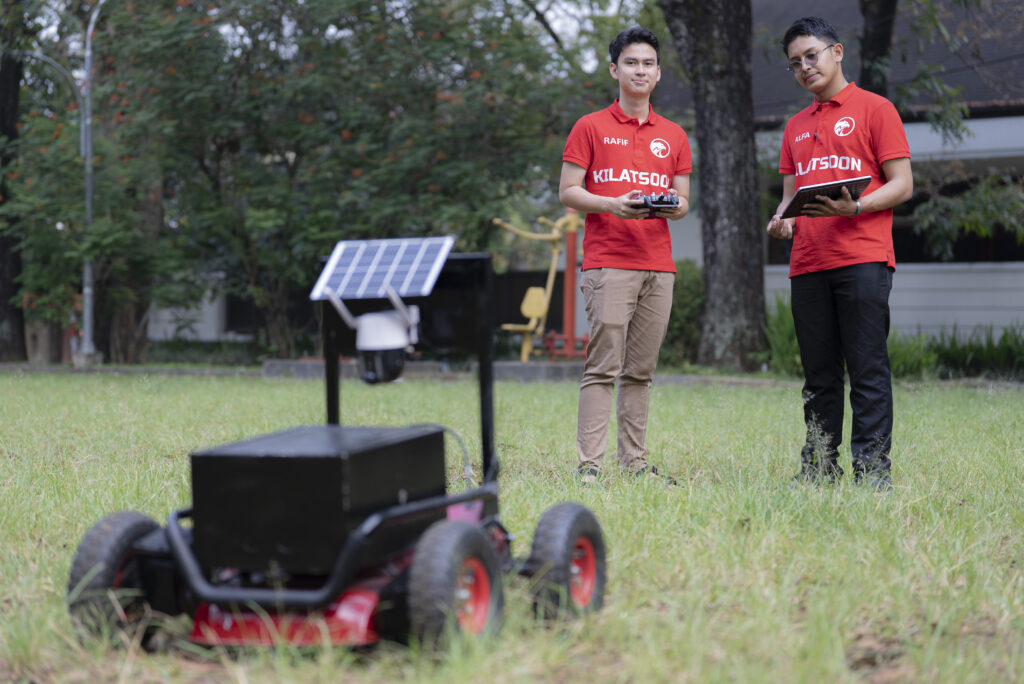
Photo: JEFRI TARIGAN
GAWIREA (Bali)
GAWIREA (Girls and Women in Renewable Energy Academy) teaches rural women and girls about renewable energy and entrepreneurship.
One of GAWIREA’s initiatives is Wani Yinio, which trains women in Papua in solar-powered sago processing.
Solar-powered sago processing cuts fossil fuel use, improves local food security, and helps women gain skills and income.
GAWIREA gives women practical training to use clean energy like solar and biomass, helping them earn more, support their communities, and adapt to climate change.
In the future, GAWIREA plans to expand the Wani Yinio model across Papua, making sago a symbol of sustainable food and women’s empowerment in the clean energy transition.
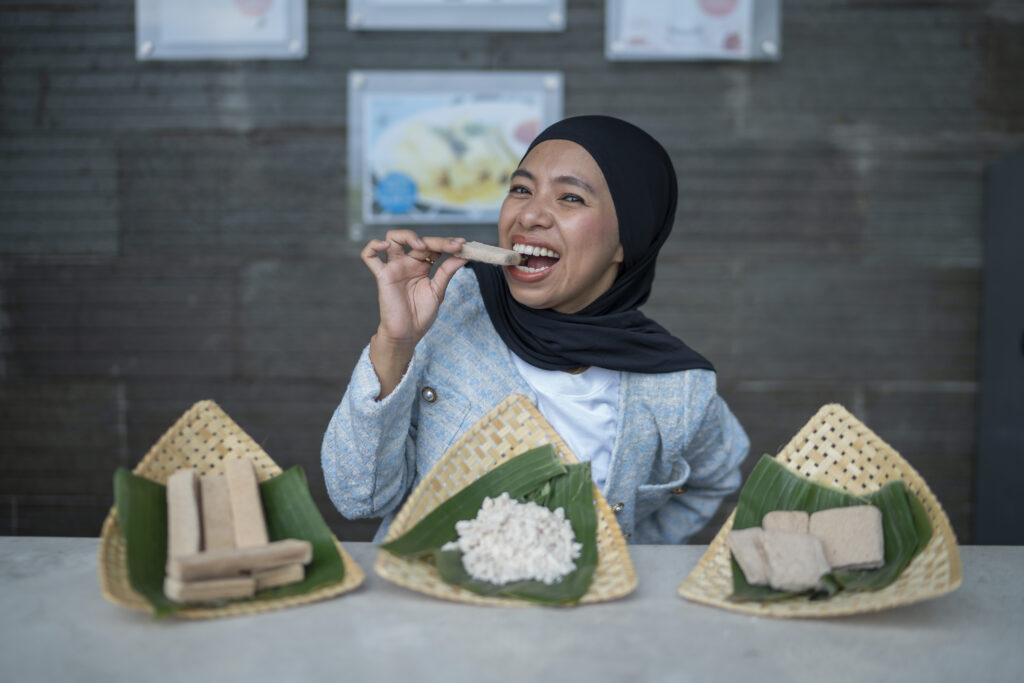
Photo: JEFRI TARIGAN
Ikanesia (Belitung/Bekasi)
Ikanesia, based in Bekasi and Belitung, turns waste from fisheries and agriculture into animal feed.
The main ingredients include insects, microalgae and organic waste, turning an environment pollutant into a valuable resource.
Farmers get cheaper, healthier feed, while fishers and farmers gain waste management solutions and ecosystems are better protected.
Ikanesia hopes to expand production capacity and enter the national feed market.
With growing demand for sustainable protein, Ikanesia could play a key role in transforming Indonesia’s food system.
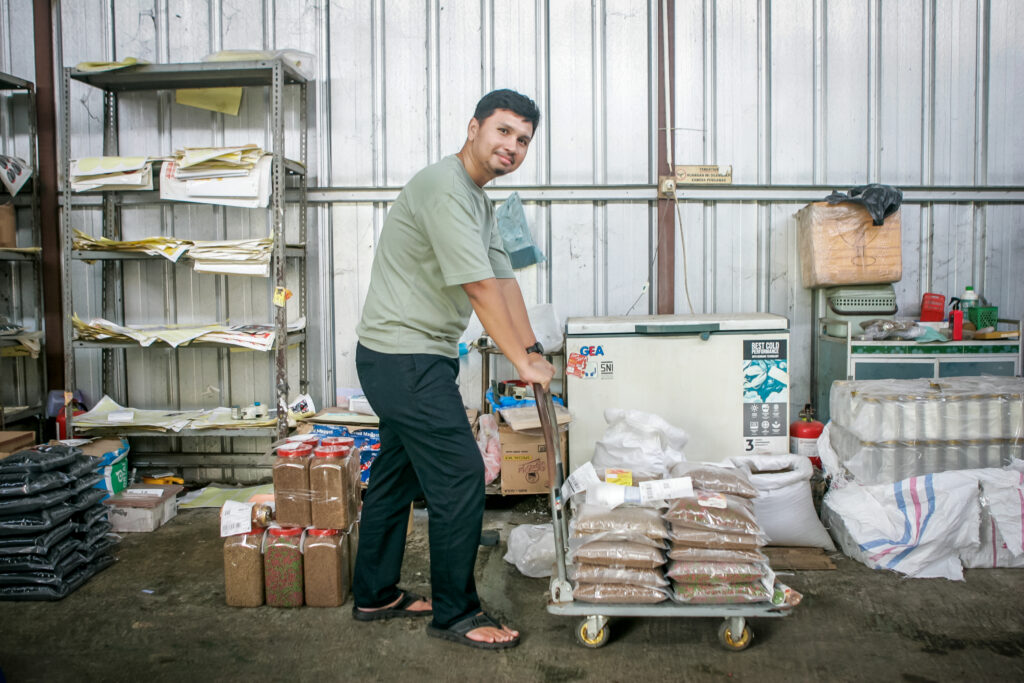
Photo: MOCHAMAD TOPANDI
PT Algatech Nusantara (Jakarta)
PT Algatech Nusantara grows microalgae that can be used for food, animal feed, cosmetics and even bioenergy.
The Jakarta-based startup has developed closed systems to grow the microscopic aquatic plants, which absorb CO₂, produce oxygen and generate nutrient-rich biomass.
Unlike traditional open ponds, this closed system makes cultivation more efficient and sustainable.
With this technology, microalgae—once confined to labs—can now be produced commercially and sustainably.
The impact is wide-reaching: cleaner environments, alternative protein sources, and new business opportunities in food and energy sectors.
The microalgae also helps cut emissions by acting as natural carbon sinks.
Algatech plans to expand its biomass production and bring this technology to more industries.
With rising demand for plant-based protein and carbon solutions, the company is well-positioned to play a leading role in Indonesia’s growing bioeconomy.
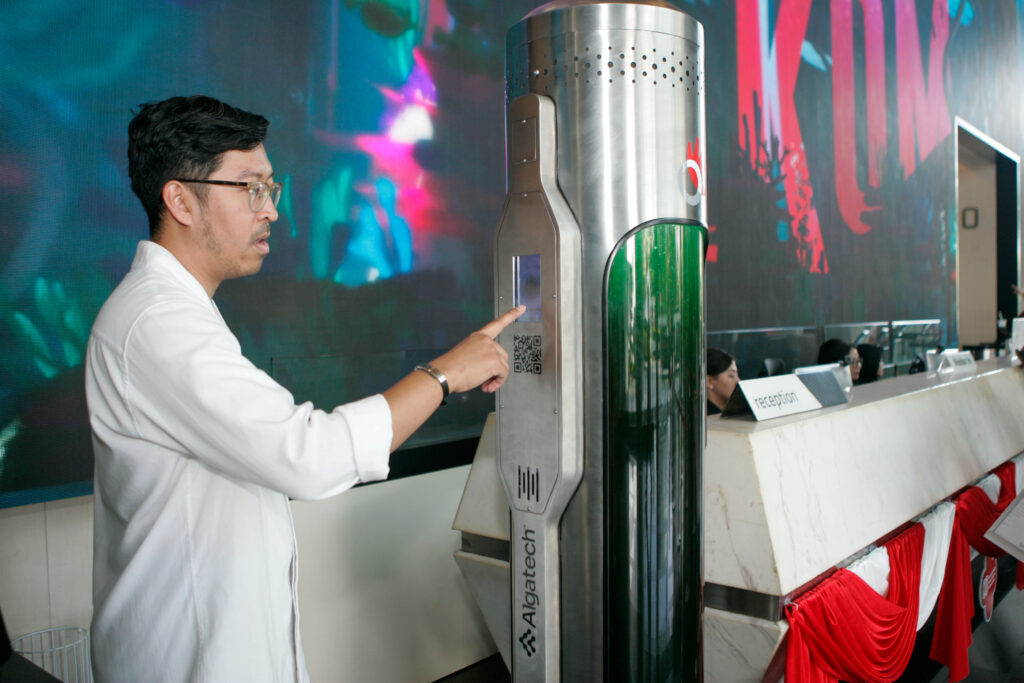
Photo: MOCHAMAD TOPANDI
STB Pellet (Madiun)
STB Pellet, based in Madiun in East Java, converts agricultural and industrial waste into biomass pellets that can replace coal.
Until now, much of this waste has been poorly managed, piling up in landfills and causing fires in the Madiun area. This leads to air pollution while dependence on coal remains high.
Using STB Pellet’s technology, waste is recycled into a clean, efficient biofuel.
Biomass pellets are an affordable renewable energy source that can be used in many ways — from drying crops and fuelling incinerators to co-firing in power plants.
The environmental impact is clear. Carbon emissions and air pollution are reduced, while agricultural waste gains new economic value.
For farmers, what was once worthless waste can now be sold, boosting income.
STB Pellet plans to expand its production and distribution networks, particularly in rural areas and encourage broader adoption of biomass pellets to reduce reliance on coal.
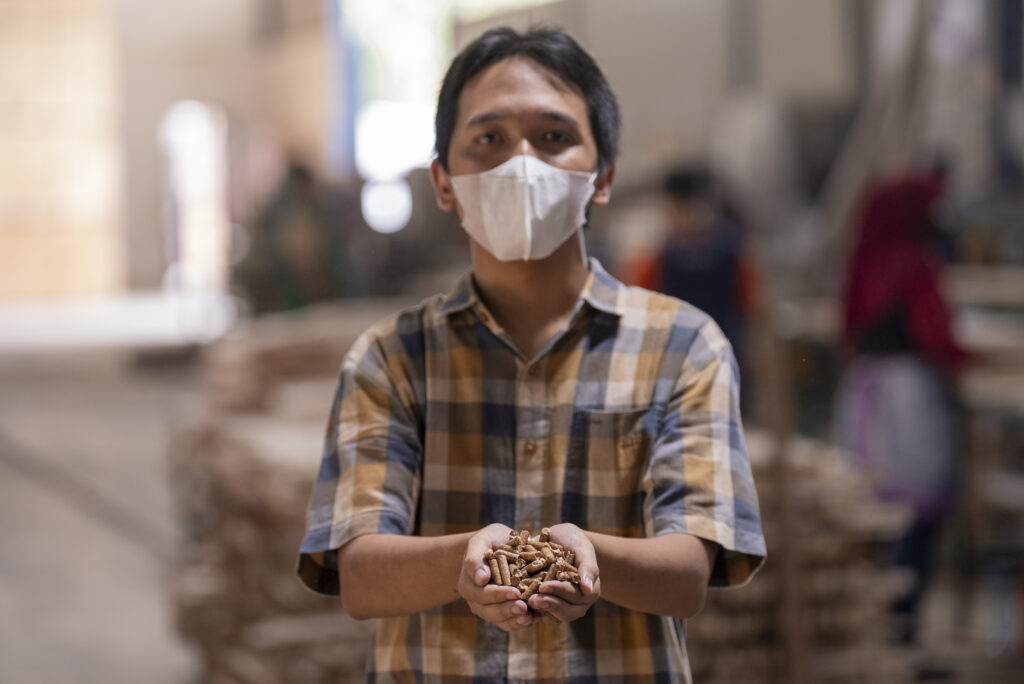
Photo: JEFRI TARIGAN

